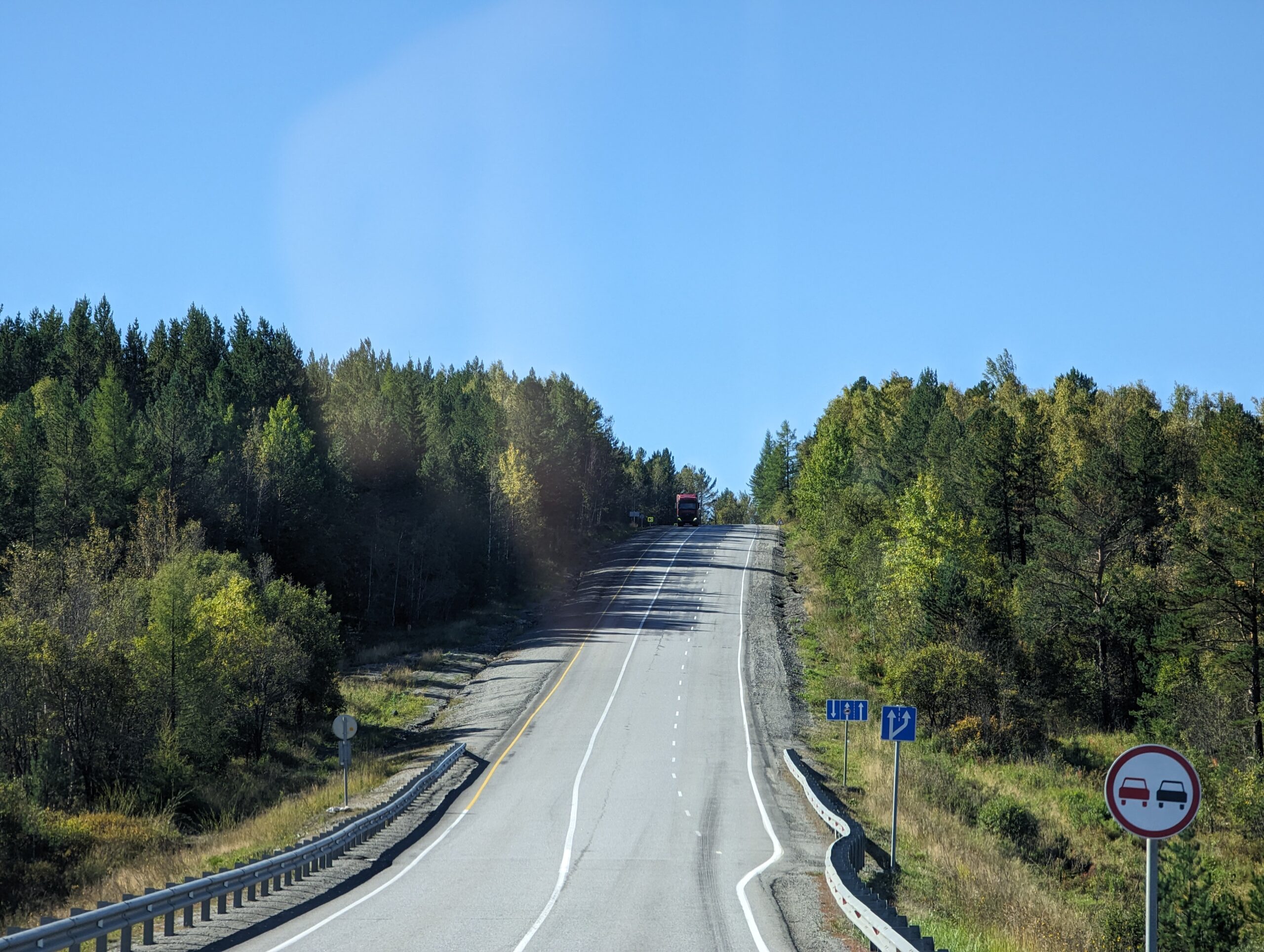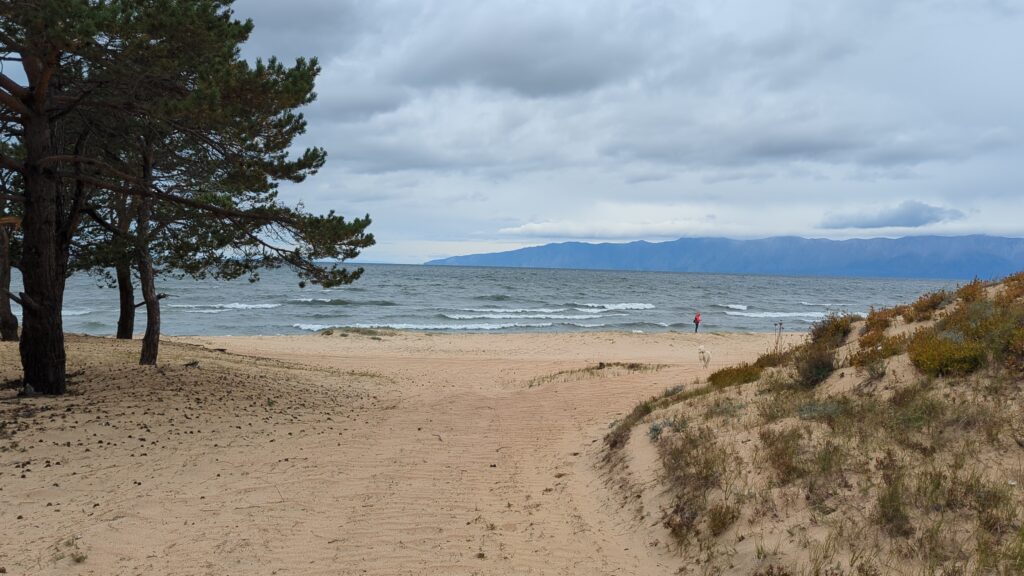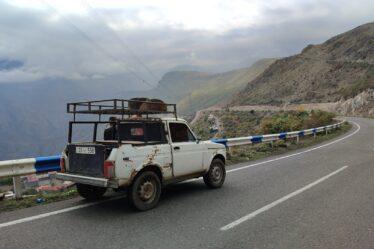
Russia, the world’s largest country, often remains a bit of a mystery to travelers, especially when it comes to hitchhiking. So, how does hitchhiking in Russia really work? Let’s dive into the details.
A Bit About Russia
Russia shares borders with a diverse set of countries, to name a few Finland, Georgia, Kazakhstan, Mongolia and even North Korea. Due to international sanctions, bring enough cash since international credit cards won’t work. Also, prepare for some language challenges: Russian is the main language, and English speakers can not be found much..
Travel Tips: Use a VPN for social media, as platforms like Instagram are blocked. Despite what you might hear in Western media, daily life in Russia seems quite normal.
How Hitchhiking in Russia Works
Hitchhiking in Russia is surprisingly doable. My experience was mostly in the Baikal region, but the success there suggests it’s likely similar in other areas.
The language barrier can be tricky, but being friendly and smiling goes a long way. It’s a great way to save money too, especially since long-distance train fares aren’t exactly cheap.
Hitchhiking in Russian Cities
Like in most countries, hitchhiking in cities can be challenging, but it’s not impossible. Use public buses to get to the city outskirts—this makes hitchhiking much easier. For example, in Ulan Ude, it cost about 30 cents to reach the city’s edge, while in Irkutsk, it was around 1.5 Euros due to multiple buses.
Public transport can be confusing, so don’t hesitate to ask locals for help.
Hitchhiking in the Countryside
Once you’re out of the city, hitchhiking becomes much easier and more enjoyable. People in rural areas are often very friendly, even if they speak little to no English.
Tip: Use the phrase “Afterstop” to indicate you’re hitchhiking. This worked well for us both in cities and the countryside.
Even though there are fewer cars in rural areas, people are generally willing to give you a lift. Sometimes, they stop for short distances, but it saves you a lot of walking.
Hitchhiking at Lake Baikal
Lake Baikal felt much like the countryside—full of small villages where public transportation is practically non-existent. While there are buses that run from nearby cities to the lake, once you’re in the villages themselves, you won’t find any public transport options.
This is where hitchhiking really comes in handy. Locals often stopped to offer short rides, saving us from walking long distances between spots. Even for just a few kilometers, their willingness to help made the journey far easier.
At one point, we were even picked up by a soldier when we found ourselves a bit lost. The friendly and helpful nature of the people here made exploring Lake Baikal both possible and memorable.

Summary
Hitchhiking in Russia isn’t drastically different from other countries in the region, though you’ll need to navigate language and money barriers. People are incredibly kind and usually stop within 30 minutes if you’re in a good spot and look friendly.
It’s a great alternative to long-distance trains. For instance, hitchhiking from Irkutsk to Ulan Ude can save you at least 40 Euros—a big deal when you have limited cash.
In Russia, the average wait time for me was about 20 minutes if you’re in a good location and have a friendly appearance and being in a good mood.
Important to remember: There’s always someone willing to stop; it’s just a matter of time. In Russia, the average wait time for me was about 20 minutes if you’re in a good location and have a friendly appearance and being in a good mood.




Leave a Reply